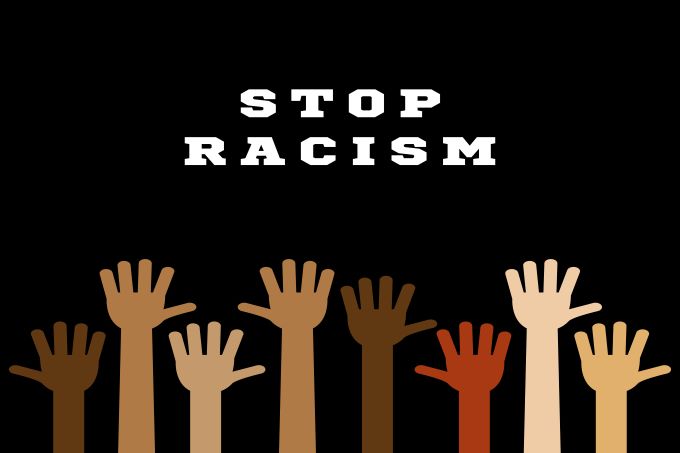In recent years the Politics and IR programme has taken steps to acknowledge and dismantle racism in the study of Politics. Dr Laura Cashman considers the progress so far and reflects on what still needs to be done.
The murder of George Floyd has prompted many difficult but necessary conversations about institutional racism in the UK and legacies of colonialism. Universities are not immune to racism; indeed, universities have played a key role in perpetuating the structural inequalities which shape our society. The Politics and International Relations programme has recognised this and in recent years we have engaged in different ways with the global movement to Decolonise the University.
We pride ourselves on having a strong sense of community and seeing students as partners in learning. Our NSS results show that we are very successful in this area. However, we know that we can still do more to ensure that our students of colour feel fully included our learning community. Nationally, there is an attainment gap of 22% for Black graduates and at CCCU even higher rates have been recorded. Rather than shy away from these statistics, the university’s Closing Our Gap initiative has faced this problem head on and initiated a range of important reforms.
Our programme has addressed specific issues around the experience of Black and Ethnic Minority students. We have created more opportunities for students to share their experiences of racism in classroom discussions, personal tutor meetings and focus groups. We have listened carefully to feedback on how to shape a more inclusive curriculum. We have updated and, in some cases completely overhauled, modules to address implicit Eurocentrism and to give students more opportunities to direct their learning to topics which resonate with their interests and experiences.
Our teaching team, while diverse in terms of class, nationality and gender, has traditionally been white and this is something our students have commented upon in focus groups. While all lecturers are committed to fighting racism and celebrating the existing diversities within our programme, we acknowledge that there are certain experiences with which we will never be confronted, such as those shared in the recent blogs of Dr Dele Babalola and Kumba Krubally. Therefore, in the past academic year, we invited more guest speakers and sessional lecturers of colour to help deliver teaching. Our sessional teaching staff in the last academic year included one Chinese lecturer and two guest lecturers of African descent.
This diversification of our teaching staff does not just benefit our students from the BAME community, but is advantageous for all our students, as these staff members share different perspectives, experiences and knowledge. In the last round of recruitment, we adapted the language in our job advertisement to emphasise that we welcomed applicants whose identities are typically under-represented in Politics and IR and in British academia more generally. As a result, the pool of candidates was more diverse, and we were delighted to appoint Dr Dele Babalola as a permanent lecturer.
However, it is important to acknowledge that racism continues to shape the discipline of politics and IR and dismantling this will be an arduous long-term process. We are committed to revising our curriculum to challenge Eurocentrism. We will maintain our support for the university’s Expect Respect and Closing our Gap campaigns to ensure that all teaching spaces allow for respectful and inclusive debate and discussion. We will continue to teach students about colonialism, privilege and structural racism as well as the other forms of oppression such as class, gender or ableist structures which may intersect and compound experiences of inequality.
The Covid-19 crisis has impacted on all our students but most profoundly on our students of colour. It has also disrupted normal university life and some of the plans we had for 2020 were stalled. We will find new ways to continue to strengthen the sense of inclusion among all students regardless of race, gender or class. We will also continue to build virtual networks of graduates and postgraduate students who can mentor our students and advise us on our plans for future programme development.
We are acutely aware that sometimes efforts to address institutional racism risk being reduced to empty rhetoric or tick-box exercises. The death of George Floyd has certainly resonated deeply but we must make sure that we do not lose momentum when the social media posturing abates. To avoid this, we invite our students to engage with us in this process and hold us to account.
Deeply embedded structural inequalities will not vanish overnight, despite our best intentions and efforts. This is also a time when academics are under extreme pressure from many directions. However, this commitment is shared by the whole team and is central to our ambition to maintain a respectful and nurturing learning environment for the benefit of all.
Dr Laura Cashman is Senior Lecturer in Politics and International Relations at Canterbury Christ Church University. Her research focuses on racism and social inclusion of minority communities. She teaches modules on our undergraduate and postgraduate degrees and welcomes applications from PhD students interested these themes.
 Politics
Politics Laura Cashman
Laura Cashman 1778
1778



2 comments on “#BlackLivesMatter and Our Black Students Matter”